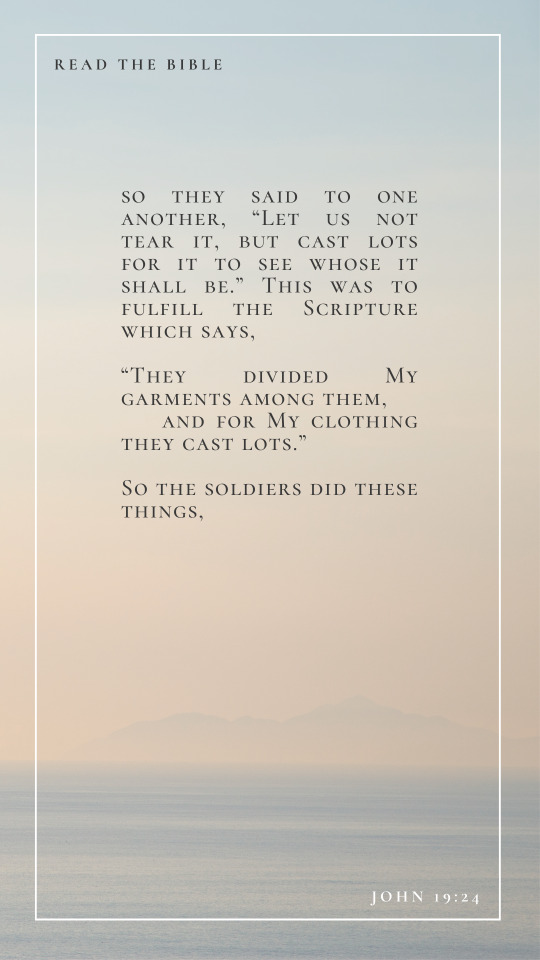#john 19
Text
John 19, Reed's Version
So Pilate ordered that Jesus be punished with a beating. The soldiers made up a mock crown of thorn branches to put on his head and they put a purple robe on him. They would step up to him and jeer, “Long live the king of Israel!” and then slap him across the face. Meanwhile, Pilate went back out to the crowd and told them, “Listen up, I’m going to release Jesus to you, since I don’t see any grounds for further punishment.” So he sent Jesus out, still wearing the crown of thorns and the purple robe, and Pilate said, “Look at this miserable fellow.” When the chief priests and their guards saw him, they all shouted, “Crucify him! Crucify him!” But Pilate told them, “You crucify him! I don’t see any reason to have him killed.” Then the Jewish leaders replied, “Our own law demands that this man be executed, because he’s claimed to be the Son of God.”
When Pilate heard this, he became even more anxious, and he went back inside. “Where are you really from?” he asked. But Jesus gave no reply. So Pilate said, “You won’t even talk to me? Surely you realize that I’m the one with the authority to either free you or crucify you.” But Jesus replied, “No one has any authority over me except what God has granted. So, Caiaphas has multiplied his guilt by compelling you to misuse your authority.” From this point on, Pilate tried various means of releasing Jesus. But the Jewish leaders hollered at him, “If you free this man, you’re no friend of Caesar’s! Anyone who would try to make himself a king is committing treason against Caesar.”
At this, Pilate decided to bring Jesus outside again. Then he sat down at his judge’s bench at The Pavement, a place which the locals call Gabbatha. (By this time it was around noon on Friday of Passover week.) Then Pilate said to the crowd, “Look, here is your king!” But they shouted back, “Get him out of here! Crucify him!” Pilate replied, “You want me to crucify your king?” But the chief priests hollered back, “Our allegiance is to nobody but Cæsar!” At their insistence Pilate finally gave in, and sent Jesus away to be crucified.
So the soldiers took charge of Jesus and made him carry his own cross to the place outside the city called The Skull (which in Aramaic is Golgotha). And there they crucified him, along with two criminals on either side of him, with Jesus in the middle. And Pilate had a notice made to be affixed to the cross. It read, “Jesus of Nazareth, the king of Israel.”
The place of crucifixion was near the city walls, so many Judeans passing by saw the notice, which was written in Aramaic, Latin and Greek. So the chief priests complained to Pilate, “Don’t write, ‘This is the king of Israel’! Write, ‘This man claimed to be king of Israel.’” But Pilate responded, “What I’ve written, I’ve written.”
The soldiers who crucified Jesus, meanwhile, had stripped him and were ripping apart his clothes and dividing up the scraps between the four of them. But his undershirt was seamless, woven from top to bottom as one piece. So they decided, “It would be a shame to tear this apart; let’s draw straws to see who gets it.” In saying this, the prophecy of scripture came true, [which says]: “They divided up my clothes among themselves, and they rolled dice for my shirt.”
While the soldiers were busying themselves at this, Jesus’s mother and the student Jesus loved came up to the cross, along with three other women: her sister and Mary (Clopas’s wife) and Mary Magdalene. When Jesus saw his mother and the student standing there, he said to her, “Look, mother; this is now your son.” Then he said to the student, “Look, this is now your mother.” So from then on, he cared for her in his own home.
A while later, when Jesus saw that everything he came to do was finished, he said, “I’m thirsty,” (which sums up the prophecy of the psalmist). A jug of wine vinegar was sitting there, so they filled a sponge with it and held it up to Jesus’s lips on a branch. He took a sip and then said, “It’s finished!” Then he lowered his head and let go of his spirit.
Now it was Friday, and the next day was not only a day of rest but also the holy day of Passover. So the Jewish leaders, were eager that the bodies not stay up on the crosses all weekend, and they asked Pilate for their legs to be broken to hasten death. So the soldiers went and broke the legs of the two criminals being crucified there. But when they came to Jesus and saw that he’d already died, they didn’t break his legs. But in order to be sure he was dead one of the soldiers stabbed him in the side with his spear, and blood flowed out with some water. The person who witnessed all this has given his testimony so that you may [come to] have faith in Jesus. His testimony is dependable, and he declares that he has told the complete truth. All this happened to prove the scripture which foretold, “Not one of his bones will be broken.” And elsewhere in scripture it also says, “They will gaze upon the one they pierced.”
Now, after Jesus died, Joseph of Arimathea asked Pilate for permission to take Jesus’s body down for burial. Now, Joseph was a follower of Jesus, but kept it a secret because he’d been afraid of what the other Jewish leaders would do. But with Pilate’s permission he went to take down the body, joined by Nicodemus (the man who had previously talked with Jesus at night) who brought a large amount of burial ointment, myrrh mixed with aloe vera. So they wrapped Jesus’s body in linen and applied the fragrances, according to Jewish burial customs. Now, near the crucifixion site there was a garden that had a tomb carved into the rock, a new one that had never been used. So, because the tomb was close and it was almost nightfall, they laid Jesus there.
0 notes
Text
Holy Saturday (John 19:38-42)
All is silent and still. Jesus is in the solitude of a dark tomb.
The Entombment, by the French sculptor Maître de Chaource, 16th century
After these things, Joseph of Arimathea, who was a disciple of Jesus, though a secret one because of his fear of the Jews, asked Pilate to let him take away the body of Jesus. Pilate gave him permission, so he came and removed his body. Nicodemus, who had at first come to Jesus by night, also came, bringing a mixture of…
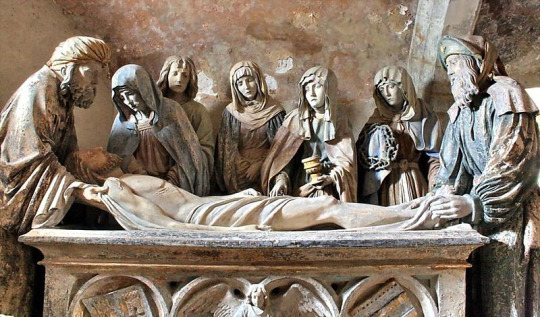
View On WordPress
#christian discipleship#christian life#christianity#death of christ#following jesus#gospel of john#grief#holy saturday#holy week#jesus christ#john 19#lent#silence#slowness#solitude#spiritual practices#stillness#suffering
1 note
·
View note
Text
JOHN S.O.A.P. ~ CHAPTER 19
Friday, 3/39/24
Good Good Friday... stepping forward into John, chapter 19... and next week we'll go through the rest of his Gospel (20, and 21), and his letters, beginning Revelation on the Monday following (7/11)...
SCRIPTURE:
The soldiers also twisted together a crown of thorns, put it on His head, and clothed Him in a purple robe.
And they kept coming up to Him and saying, “Hail, king of the Jews!” and were slapping His face.
~ John 19:2,3
OBSERVATION:
How often do I:
...twist a crown of my own making and try to fit it on His head?
...say, "Hail, King..." without meaning it wholeheartedly?
...find myself "slapping His face" by not following as I know I should, by willfully doing what I want?
He forgave Peter for "worse" - but still...
APPLICATION:
Give Him His rightful crown...
Truly honor Him as King...
Seek - accept and act on - His forgiveness...
PRAYER:
Heavenly Father - I ask Your forgiveness for those times I mock Your grace by my actions and willfulness, knowing better and yet insisting on going my... Thank You for Your Holy Spirit's ongoing guidance, and for the example and sacrifice of Jesus for me and all around me... In His Name, and for Your glory and thankful praise...
As always, y'all's always, in always... through Him...
𝖌
<))><
0 notes
Text
Church notes - 29th March 2024
29th Good Friday
Luke 22:14 - 20
It is Finished
John 19:30
It had different meanings to different people.
Hebrews 10:1 - 18
What would you answer when asked what did Jesus mean?
The Old Testament Sacrificial System wasn't designed to last forever.
It was a shadow of what was coming.
It was finished.
Jesus gave up His spirit.
He gave His life freely for all Mankind.
The curtain torn in two.
vs 14
He is perfect in God's eyes.
Not because of we have done, but because of what He has done. His sacrifice lasts forever.
vs 15 - 16
vs 17
Sins no longer remembered.
Psalm 103
As Far as the east is from the west.
vs 18
The perfect sacrifice has been made.
Many Old Testament prophecies were fulfilled.
Those who accept Christ as Lord and Saviour were blameless.
Romans 6:26
Death has been conquered. Resurrection was assured.
0 notes
Text
Sunday School Live Stream - December 3, 2023
https://www.facebook.com/akronalliancefellowship/videos/1766439077103437
Asst. Pastor Melvin Gaines
John 19:31-42
View On WordPress
0 notes
Text
Names of Jesus: King of the Jews

View On WordPress
0 notes
Text
'Good Friday' doesn't feel so good
I got to chapter 19 in the Gospel of John this morning; it’s the crucifixion of Jesus. It brought a real sadness to me.
I don’t usually feel that on Good Friday—it’s good and it’s Friday. But maybe one of the reasons we call Good Friday good is the self centeredness in all of us—good for us, terrible suffering for Jesus. It’s easy to forget the deep sadness we should feel that the perfect man…
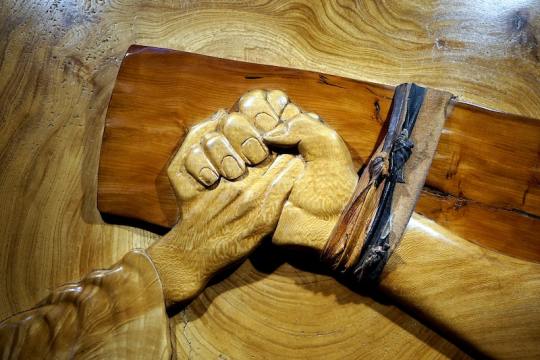
View On WordPress
0 notes
Text
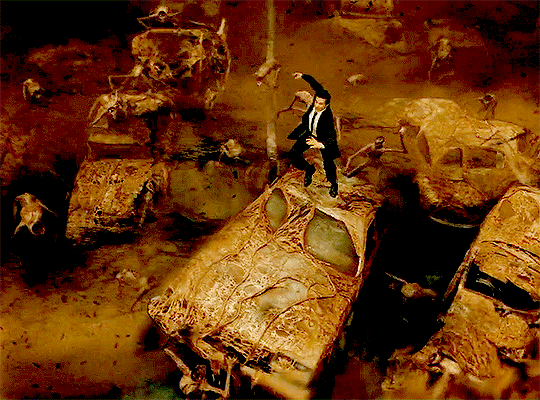


CONSTANTINE (2005) dir. Francis Lawrence
#constantine#constantine 2005#filmedit#horroredit#dcedit#john constantine#keanu reeves#keaunureevesedit#my edits#mine: constantine#how is this movie 19 years old and it looks better than some movies made recently?
961 notes
·
View notes
Text


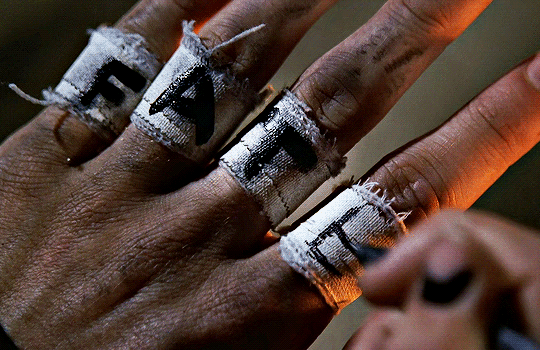







19 years ago today, Oceanic Flight 815 crashed.
#lost#lostedit#tvedit#lost spoilers#jack shephard#kate austen#charlie pace#shannon rutherford#john locke#james sawyer ford#nikolatexla#the best show in tv history premiered 19 years ago today#i'll always be insane about this show#it has the best pilot best characters best plot best opening scene best soundtrack etc etc#i lowkey wanna gif every episode of lost like this according to the date it aired
1K notes
·
View notes
Text
ITS MY BIRTHDAY!!!! WOOO
ANYWAY
PRICE PUSSY PLEASER!!!!
he eats you out like a man STARVED, keeping his head between your thighs for HOURS - purely for his pleasure
he loves licking into your hole, tasting the sweetness on his tongue :( he just laps at you, desperate for you to gush into his mouth and give him more of what he wants
he leaves your pretty clit so neglected until you start whining and tearing up, then finally gives you some solace and wraps his lips around the little bud, sucking and kissing like his life depends on it
he overstimulates you like crazy, he can’t get enough of it
when he finally pulls his head up his facial hair is covered in your juices :( he doesn’t care and just kisses you, making you taste yourself on his tongue
#IM 19!!!!#mw2 smut#mw2 x reader#mw3 smut#call of duty smut#john price smut#price smut#price x reader#john price#john price x reader#john price x reader smut#price x reader smut#call of duty x reader#call of duty x reader smut#cod smut#cod price
356 notes
·
View notes
Text
John 19:38–42
38 Μετὰ δὲ ταῦτα ἠρώτησεν τὸν Πιλᾶτον Ἰωσὴφ [ὁ] ἀπὸ Ἁριμαθαίας, ὢν μαθητὴς τοῦ Ἰησοῦ κεκρυμμένος δὲ διὰ τὸν φόβον τῶν Ἰουδαίων, ἵνα ἄρῃ τὸ σῶμα τοῦ Ἰησοῦ· καὶ ἐπέτρεψεν ὁ Πιλᾶτος. ἦλθεν οὖν καὶ ἦρεν τὸ σῶμα αὐτοῦ. 39 ἦλθεν δὲ καὶ Νικόδημος, ὁ ἐλθὼν πρὸς αὐτὸν νυκτὸς τὸ πρῶτον, φέρων μίγμα σμύρνης καὶ ἀλόης ὡς λίτρας ἑκατόν. 40 ἔλαβον οὖν τὸ σῶμα τοῦ Ἰησοῦ καὶ ἔδησαν αὐτὸ ὀθονίοις μετὰ τῶν ἀρωμάτων, καθὼς ἔθος ἐστὶν τοῖς Ἰουδαίοις ἐνταφιάζειν. 41 ἦν δὲ ἐν τῷ τόπῳ ὅπου ἐσταυρώθη κῆπος, καὶ ἐν τῷ κήπῳ μνημεῖον καινὸν ἐν ᾧ οὐδέπω οὐδεὶς ἦν τεθειμένος· 42 ἐκεῖ οὖν διὰ τὴν παρασκευὴν τῶν Ἰουδαίων, ὅτι ἐγγὺς ἦν τὸ μνημεῖον, ἔθηκαν τὸν Ἰησοῦν.
My translation:
38 And after these things Joseph from Arimathea, being an apprentice of Yeshua, but having been concealed on account of fear of the Judeans, asked Pilate that he might take away the body of Yeshua; and Pilate permitted it. He went, therefore, and took away his body. 39 And Nicodemus also came, who came to him by night at the first, bearing a mixture of myrrh and aloes, about one hundred litra. 40 They took, therefore, the body of Yeshua and bound it in cloths with the aromatics, just as is the custom for the Judeans to bury. 41 And in the place where he was crucified there was an orchard, and in the orchard a new tomb in which no one was yet having been put; 42 there, therefore, on account of the preparation day of the Judeans, for the tomb was near, they put Yeshua.
Notes:
19:38
δὲ is transitional (generally left untranslated).
The temporal prepositional phrase μετὰ ταῦτα, referring to the death of Jesus, modifies the aorist ἠρώτησεν (from ἐρωτάω), whose direct object is τὸν Πιλᾶτον and subject is Ἰωσὴφ. The article [ὁ] looks like a scribal correction, to place the prepositional phrase ἀπὸ Ἁριμαθαίας in the attributive position with Ἰωσὴφ.
The present participle ὢν (from εἰμί), being anarthrous, is adverbial with ἐρωτάω above, perhaps denoting cause (“because he was a disciple ... he asked”). μαθητὴς is a predicate nominative, modified by genitive of relationship τοῦ Ἰησοῦ.
δὲ is adversative (“but”).
The perfect passive participle κεκρυμμένος (from κρύπτω “I hide, conceal, cover”; see note on 8:59) is attributive with an implied μαθητὴς; the perfect-tense is stative (lit. “but a hidden disciple”); NASB, NRSV: “a secret one”; NIV, NET, HCSB: “secretly”. The participle is modified by the causal prepositional phrase διὰ τὸν φόβον. τῶν Ἰουδαίων is an objective genitive (lit. “on account of fear of the Jews”; NIV: “because he feared the Jewish leaders”).
ἵνα + subjunctive, equivalent to an infinitive, indicates purpose after ἐρωτάω above (“asked Pilate that he might take” = “asked Pilate for permission to take”). Joseph is the unexpressed subject of the aorist subjunctive ἄρῃ (from αἴρω) and the direct object is τὸ σῶμα. τοῦ Ἰησοῦ is a possessive genitive.
ἐπιτρέπω (18x) is, “I allow, permit” (BDAG), from ἡ ἐπιτροπή (1x) “permission”. The subject of the aorist ἐπέτρεψεν is ὁ Πιλᾶτος (“Pilate permitted it”; NRSV, NET, HCSB; “Pilate gave him permission”).
οὖν is inferential (“so”, most translations).
Joseph is the unexpressed subject of the 2nd aorists ἦλθεν (from ἔρχομαι) and ἦρεν (from αἴρω). τὸ σῶμα is the direct object of αἴρω; αὐτοῦ, referring to Jesus, is a possessive genitive.
19:39
δὲ is transitional (generally left untranslated).
The subject of the 2nd aorist ἦλθεν (from ἔρχομαι) is Νικόδημος. καὶ is adjunctive (“also”).
The articular present participle ὁ ἐλθὼν (from ἔρχομαι) is substantival and appositional to Νικόδημος above. The aorist participle denotes action prior to the aorist main verb ἦλθεν, and thus is properly rendered in English by a pluperfect (“who had come”). The participle is modified by the spatial prepositional phrase πρὸς αὐτὸν, referring to Jesus. νυκτὸς is a genitive of time (see note on 3:2) modifying the participle. For τὸ πρῶτον, see note on 10:40 (NRSV: “at first”; NIV: “earlier”; NET, HCSB: “previously”).
The hapax legomenon τό μίγμα is, “mixture, compound [of an ointment]” (BDAG).
ἡ σμύρνα (2x) is, “myrrh”, ‘the resinous gum of the bush balsamodendron myrrha’ (BDAG).
The hapax legomenon ἡ ἀλόη is, “aloes”, ‘the strong aromatic, quick-drying juice of the aloe vera or aloe succotrina’ (BDAG). The direct object of the present participle φέρων (from φέρω) is μίγμα; σμύρνης καὶ ἀλόης are genitives of content, or perhaps objective genitives. The participle denotes manner with ἦλθεν above.
The indeclinable numeral ἑκατόν is, “one hundred”. ὡς before a number means, “about”. ἑκατόν is attributive with λίτρας (“a [Roman] pound”; see note on 12:3) which is accusative to match μίγμα above; Leedy diagrams λίτρας as the predicate nominative of an implied neuter participle ὄν (from εἰμί): “a mixture ..., being about one hundred litra”. One Roman pound is equivalent to 12 ounces or 3/4 American pounds (NIV, NET: “about seventy-five pounds”).
19:40
οὖν is transitional (“Then”, NET, HCSB).
Joseph and Nicodemus are the unexpressed subject of the 2nd aorist ἔλαβον (from λαμβάνω) and of the aorist ἔδησαν (from δέω “I bind”). τὸ σῶμα, modified by possessive genitive τοῦ Ἰησοῦ, is the direct object of λαμβάνω. αὐτὸ, referring to τὸ σῶμα, is the direct object of δέω.
τό ὀθόνιον (5x, 4 of which in this passage) is, “[linen] cloth, cloth wrapping” (BDAG), the diminutive form of ἡ ὀθόνη (2x) “linen sheet”. The dative ὀθονίοις is instrumental with δέω above.
τό ἄρωμα is, “fragrant spice/salve/oil/perfume” (BDAG). The associative prepositional phrase μετὰ τῶν ἀρωμάτων modifies δέω above.
The comparative adverb καθὼς connects the following clause with δέω above.
τό ἔθος (12x) is, “habit, custom”, a second-declension neuter noun.
ἐνταφιάζω (2x) is, “I bury, prepare for burial” (BDAG), from ἐνταφιασμός (2x) “preparation for burial” (see 12:7). The present infinitive ἐνταφιάζειν is epexegetical of ἔθος, which is the subject of the present ἐστὶν (from εἰμί). τοῖς Ἰουδαίοις is a dative of reference/respect.
19:41
δὲ introduces background information (“Now”, NASB, NRSV, NET).
The subject of the imperfect ἦν (from εἱμί) is κῆπος (“garden”; see note on 18:1). The verb is modified by the locative prepositional phrase ἐν τῷ τόπῳ. The clause introduced by the spatial particle ὅπου is epexegetical of τόπῳ. Jesus is the unexpressed subject of the aorist passive ἐσταυρώθη (from σταυρόω “I crucify”): “in the place where he was crucified there was a garden”.
The locative prepositional phrase ἐν τῷ κήπῳ (“in the garden”; see note on 18:1) modifies an implied ἦν, whose subject is μνημεῖον (“tomb”, 11x in this passage); the adjective καινὸν is attributive.
The antecedent of the relative pronoun ᾧ is μνημεῖον. The locative prepositional phrase ἐν ᾧ modifies the imperfect ἦν (from εἰμί), whose subject is the substantival οὐδεὶς. The adverb οὐδέπω (“not yet”; see note on 7:39) modifies ἦν. ἦν forms a periphrastic construction with the perfect passive participle τεθειμένος (from τίθημι), equivalent to a pluperfect (“in which no one had yet been laid”, NASB).
19:42
οὖν is inferential (“Therefore”, NASB; “And so”, NRSV, NET).
The locative adverb ἐκεῖ modifies the main verb ἔθηκαν below.
The causal prepositional phrase διὰ τὴν παρασκευὴν (“day of preparation”, “Friday”; see note on v. 14) modifies the main verb ἔθηκαν below. τῶν Ἰουδαίων is a descriptive genitive (“Jewish day of preparation”).
The clause introduced by the causal ὅτι modifies the main verb ἔθηκαν below. The adjective ἐγγὺς is predicate with the imperfect ἦν (from εἰμί) whose subject is τὸ μνημεῖον (“the tomb”).
Joseph and Nicodemus are the unexpressed subject of the aorist ἔθηκαν (from τίθημι) and τὸν Ἰησοῦν is the direct object.
0 notes
Text
Good Friday (John 18:1-19:42)
He then lowered his head to his chest and, with his last breath, gave up his spirit.
The Death of Christ, by Melanie Twelves
Today’s Gospel lesson encompasses the full two chapters of events surrounding the arrest, torture, crucifixion, and death of Christ. Jesus died not only for white European heritage persons (like me) but for people of all races and ethnicities everywhere. And so, it is good and appropriate that the following comes from the First Nations Version: An…

View On WordPress
#apostle john#apostle peter#christ&039;s crucifixion#christ&039;s passion#christianity#cross of christ#death of christ#good friday#gospel of john#holy week#jesus christ#john 18#john 19#joseph of arimathea#judas iscariot#king jesus#lent#nicodemus#pontius pilate
0 notes
Text
JOHN S.O.A.P. ~ CHAPTER 19
Friday, 11/4/22
SCRIPTURE:
The place where Jesus was crucified was near the city, and the sign was written in Hebrew, Latin, and Greek, so that many people could read it.
~ John 19:20
OBSERVATION:
Jesus was crucified near the city... and while "routine" or "normal" is wasn't hidden - in fact it was where it was on purpose to make a point...
"...the sign was written in Hebrew, Latin, and Greek so that many people could read it..." - what "signs" do I allow the Spirit to write in and on me and my actions so that "...many people [can] read..." what He has and is doing in my life?
Do I know how to speak Jesus to folks in the "language(s)" they'll understand?
Does the "sign" in my life speak to others? Can they read Jesus in me?
APPLICATION:
Consider where I am...
Consider what's become "routine..." - pay attention to keeping His Word and activities fresh and new...
Consider the "language(s)" I speak... and to whom I speak them...
PRAYER:
Gracious Father God - forgive my taking time with and for You as something common and routine - Thank You for Your Spirit who nudges and reminds me that anything from or about You is to be treated as miraculous and a blessing to others as well as myself... May Jesus's example - surrendering His will for Yours - become my standard in making decisions and responding to those You send into my life... In Jesus's Name, and for Your honor and glory and worshipful praise...
Joyfully - and thoughtfully, purposefully - yours - in Him...
g
<))><
0 notes
Text
Church notes - 24th July 2022
24th
Psalm 103
Prayer: COVID spread in Australia
Joshua 14:8 - 15
Generational cohorts
Early - Work and Identity
Middle life - Purpose
Caleb
He understood his purpose to the very end.
Numbers 13:30
He gave a positive report on the Promised Land.
He was filled with faith.
vs 7, 8
He had his faith in God. He was willing to follow God. He hung in there through the 40 years of wandering.
vs 10
Asking for his inheritance.
A sense of purpose. Holding onto the Promise.
A sense of character.
A life marked by humility.
'Manifestations of temper, temptations and irritation, feelings of bitterness and estrangement have their heart in nothing but pride.' - Andrew Murray.
What stage of life are you at?
What encouragement do you need?
We need to apply our faith to the circumstances of our lives.
John 19:30
"It is finished."
Jesus has acheived victory for us over sin.
0 notes

